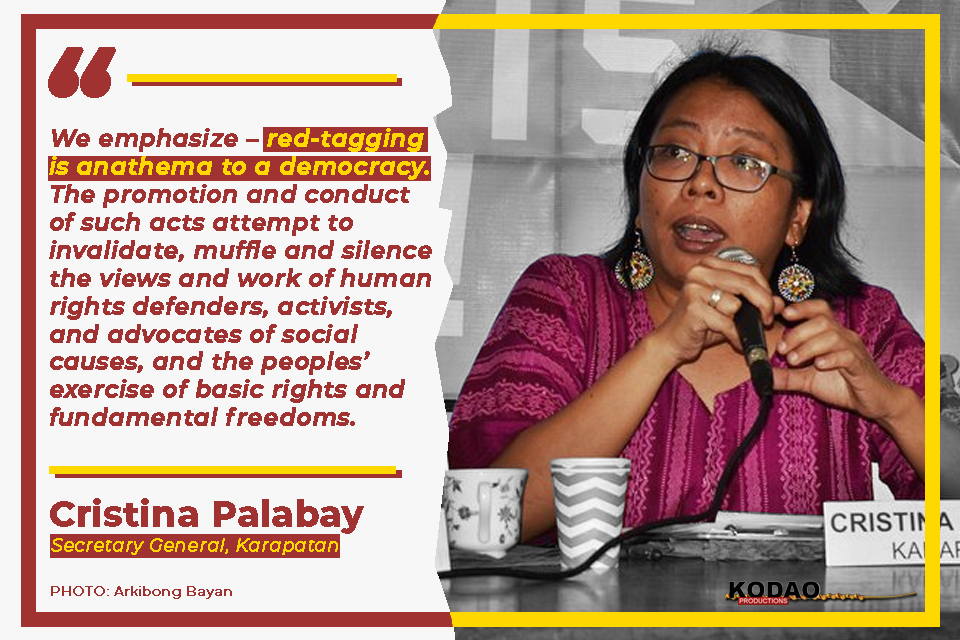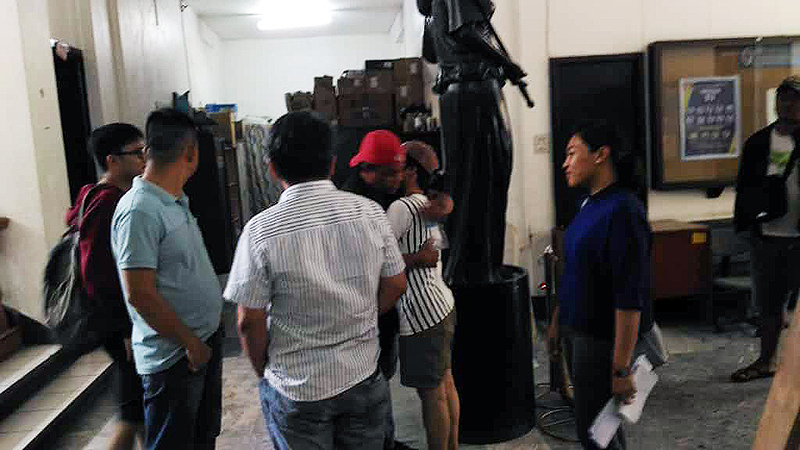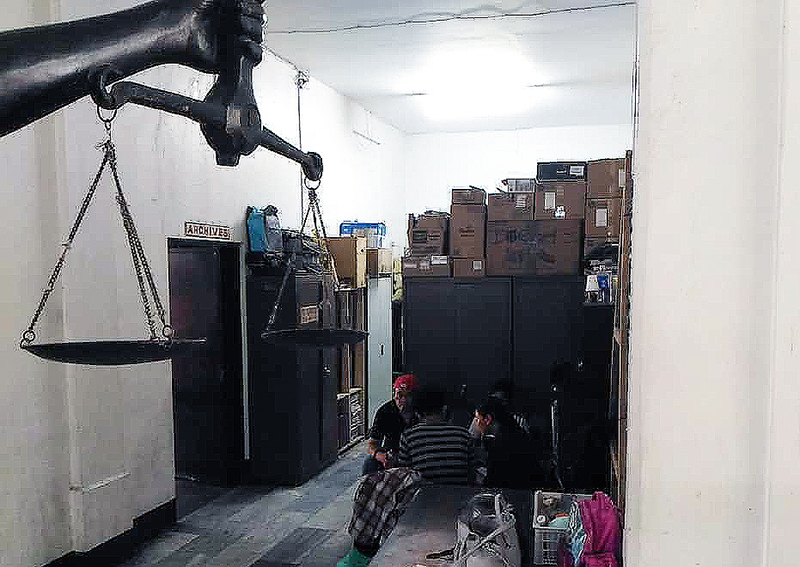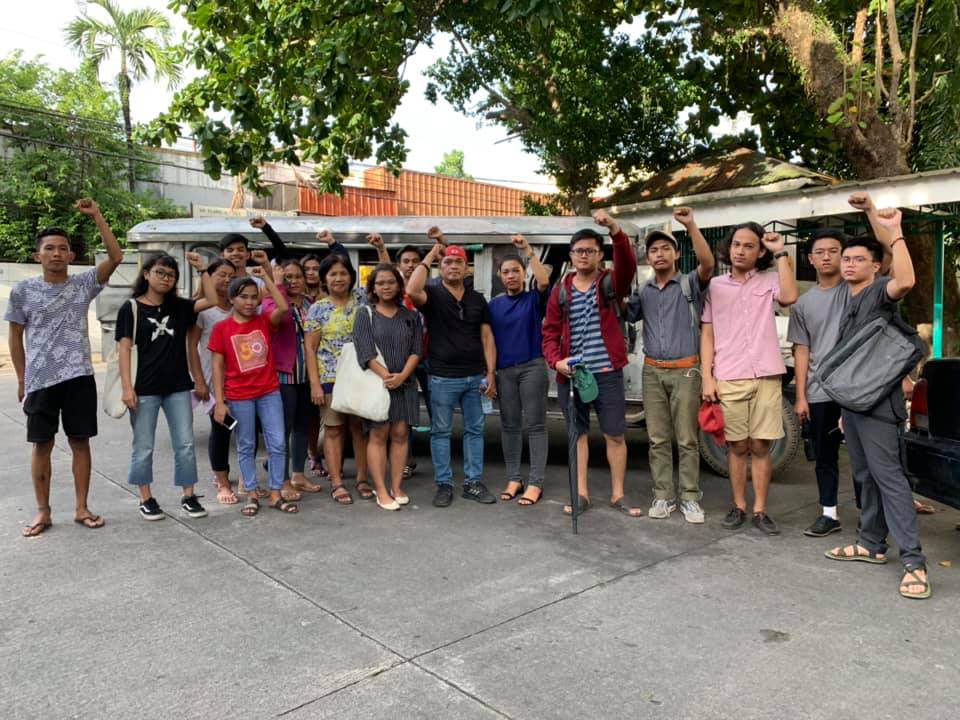Groups laud HOR approval of rights defenders, COMELEC employees’ bills
Two bills approved by the House of Representatives (HOR) on January 17 earned nods from groups supporting their enactment and asked the Senate to immediately pass pending counterpart proposals.
In separate statements on Monday, the group Karapatan lauded the passage of the bill giving protection to human rights defenders (HRDs) while election commission employees hailed the approval of the proposed law strengthening Commission on Elections (COMELEC) field offices.
The HOR approved on third reading House Bill (HB) 10576 entitled “An Act Defining the Rights and Fundamental Freedoms of Human Rights Defenders, Declaring State Responsibilities, and Instituting Effective Mechanisms for the Protection and Promotion of These Rights and Freedoms.”
The chamber also passed HB 10579, “An Act Strengthening the Field Offices of the Commission on Elections by Upgrading and Creating Certain Positions,” amending Batas Pambansa Bilang 881, the country’s old Omnibus Election Code.
Long overdue
Karapatan said it lauds HB 10576’s principal authors who want to give protection to HRDs as well as to other rights advocates such as lawyers, church people, journalists, development workers and freedom of expression and association advocates.
“Maraming salamat, (Albay) Rep. Edcel Lagman, (Quezon City) Rep. Kit Belmonte, (Bayan Muna) Rep. Karlos Ysagani Zarate (and the rest of the) Makabayan bloc!” Karapatan secretary general Cristina Palabay said.
In a statement, Lagman said, “The enactment of the Human Rights Defenders Act will put an end to the prevailing impunity on the extrajudicial killings and extreme harassments of HRD.”
Lagman said the following are the proposed measure’s salient provisions:
- Defines HRD as “any person, who individually or in association with others, acts or seeks to act to protect, promote, or strive for the protection and realization of human rights and fundamental freedoms, at the local, national, regional, and international levels.” This definition is broad and inclusive enough to cover HRDs in both government and private sector who may not be bona fide connected to any human rights organization.
- Embodies the rights and fundamental freedoms enshrined in the United Nations Declaration on Human Rights Defenders such as the rights to: form associations and to peaceful assembly; represent and advocate; privacy; effective remedy and full reparation; and freedom from intimidation, reprisal, defamation, and stigmatization among others.
- Prohibits all public authorities from participating, by acts of commission or omission, in violating human rights and fundamental freedoms. Subordinate employees have the right and duty to refuse any order from their superiors that will cause the commission of acts that contravene their duty to protect, uphold, and promote human rights and fundamental freedoms. Such refusal shall not constitute a ground for any administrative sanction.
- Strengthens the obligation of public authorities to conduct investigations on suspected human rights violations of HRDs.
- Prohibits the public authority offender from invoking presumption of regularity in the performance of duty which presumption is commonly used as a veneer to conceal accountability for violation of human rights and freedoms. The prohibition is consistent with the rule on the Writ of Amparo.
- Mandates government agencies to enforce and institutionalize command responsibility and impose sanctions against errant superiors in both military and civilian agencies as provided under existing laws and executive issuances.
- Directs public authorities to adopt the human rights-based approach to governance and development including in counter-insurgency and anti-terror programs and policies.
- Seeks to strengthen the Witness Protection Program of the Commission on Human Rights and mandates the Commission to provide sanctuaries for high-risk HRDs, particularly those who have filed formal complaints against high-ranking government officials.
- Ensures respect for the principle of non-refoulement or the practice of not forcing refugees or asylum seekers to return to a country where they are likely to be subjected to persecution.
- States that in exercising their rights under the Act, HRDs shall be subject only to limitations that are prescribed by law, in accordance with international human rights obligations and standards, are reasonable, necessary and proportionate, and are solely for the purpose of securing the recognition and respect for the rights and fundamental freedoms of others and meeting the reasonable requirements of public order and general welfare in a democratic society.
- Creates an independent collegial body to be known as the Human Rights Defenders Committee composed of one Chairperson and six members. The Chairperson shall be selected by the Commissioners of the CHR from among themselves in an en banc session. The six members shall be jointly nominated by representatives of human rights organizations. The nominees shall be appointed by the CHR not by the President to underscore the Committee’s independence of the Executive.
- States 10 guiding principles that shall be adhered to in implementing the Act and in formulating the corresponding rules and regulations. These include among others: adherence to the rule of law; active participation of HRDs in formulating, implementing and evaluating HRD protection programs; periodic risks assessments; confidentiality of personal data collected on HRDs; special attention to protection of women and LGBT HRD rights; continuous training of the Committee Secretariat; sustained adequate resources; and transparent and equitable resource allocation.
- Expressly provides that all provisions of the HRD Protection law shall be construed to achieve its objectives and that all doubts in the implementation and interpretation of these provisions shall be resolved in favor of the HRD.
Karapatan said it is high time Congress fully enacts the measure, as “[h]uman rights defenders were killed, arrested, detained, red-tagged and threatened for so long, and a law to criminalize these acts has been long overdue.”
“We call on the Senate, specifically Sen. Richard Gordon who chairs the Committee on Human Rights, and Senate President Tito Sotto to expedite the hearings and pass the proposed HRD Bill of Sen. Leila de Lima,” Palabay said.
‘Overjoyed’
Meanwhile, the Commission on Elections Employees Union (COMELEC-EU) said its 5,000 members nationwide are “overjoyed” by HB 10579’s passage by the HOR.
The poll body’s personnel added the development is “a booster shot,” lifting morale as they prepare for May’s local and national elections.
COMELEC-EU national president Mac Ramirez said the bill will not only benefit COMELEC employees but will help ensure clean and honest elections in the future.
Principal author and ACT Teachers Party Rep. France Castro said the bill is aimed at correcting COMELEC employees’ lower salary grades and to reform the poll body’s field offices.
Castro acknowledged COMELEC-EU’s role in campaigning for the bill, members of which suffered low wages for many years.
Castro added that COMELEC personnel, whose workloads increase during election years, deserve salary increases and regularization as employees.
Both Castro and Ramirez likewise appealed to the Senate to fast track the approval of the proposed measure’s Senate counterpart. # (Raymund B. Villanueva)









